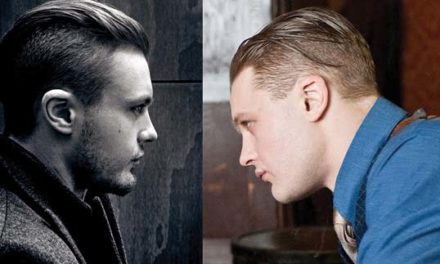Hair loss, also known as alopecia, can happen to anyone, and it’s a demoralizing issue. The issue temporarily or permanently happens to the scalp or entire body due to factors like heredity, hormone changes, ageing, or medical conditions. Anyone can face the disease, but it is common in men. Men experience excessive loss of hair, leading to baldness. Heredity and age are common causes of baldness in men. However, some people don’t concern themselves with the issue, leaving it untreated or unhidden. While others may decide to find a solution to cover the scalp by wearing a wig, hairstyle, makeup, carves, or hats. In addition, there are treatments available to prevent further hair loss and sometimes restore growth.
But don’t worry, you’re not alone. Millions of people suffer from hair loss every year. In this post, we’ll outline five common causes of hair loss and what you can do about them. Keep reading to learn more!
1. Genetics
Genetics is the primary cause of hair loss in people. If you have an ancestor or family member experiencing hair loss, there is a higher probability of having one or affecting the next generation. There are many reasons why genetics causes hair loss, such as alopecia areata and male pattern baldness. Genetic hair problems affect both genders. Men face male pattern baldness, while women face female pattern hair loss. The medical condition, also known as androgenic alopecia, is an inherited gene. The condition shrinks the hair and eventually affects its growth. Shrinking starts early in men, even as teens. A sign of hair loss in women is thinning or a widening part, which means experiencing a receding hairline or bald spot – usually at the top. The upside is that there are different treatments like Red Light Therapy, which have shown some fantastic results if engaged at the start of signs, that could stop the action and even restore hair follicles. Without treatment, there is no way the hair will grow back. Instead, it keeps falling.
2. Hormonal Imbalance
Funny but true! Hormone imbalance is another cause of hair loss. The relationship involves complicated factors like childbirth, menopause, thyroid, birth control pills, or ovary diseases like PCOS. If your hair loss starts simultaneously with your hormonal issues, see a doctor who can render assistance, such as treatment.
A common ovary disease resulting from hormonal imbalance is polycystic ovary syndrome (PCOS). Cysts start building on the ovaries with other signs like hair loss. However, involvement in treatment will help. The first sign of hair loss in women experiencing this period is thinning.
3. Stress
Stress is the primary cause of many health conditions, and hair loss is one of them. As stress begins to consume the body, body parts start to break down as nutrients are no longer sufficient. As a result, your body switches to survival mode to prevent shutting down—this redirects nutrients to essential organs and not to non-essential organs like hair growth. Hair loss begins to approach when the body and mind undergo intense stress, such as illness or surgery. The action may continue for three to six months, and the only way to stop it is by talking to a dermatologist. There are treatments like minoxidil or platelet-rich plasma that support hair growth.
4. Medications
Some medications are harsh and cause harm to the body. These medications lead to different medical conditions. And one way the side effect manifests is hair loss. Medications like antidepressants, chemo drugs, blood thinners, and beta-blockers can result in hair loss. If you’re experiencing hair loss while on medication, talk to your doctor about prescribing something different. However, don’t stop taking the medication before talking to your doctor, as stopping some medications may lead to a severe condition.
5. Poor Diet
A poor diet lacks nutrients, which the body must manage by feeding essential parts. Hair growth is not among the high-class body parts. Meanwhile, a balanced diet consisting of proteins, vegetables, and vitamins may support hair growth. Any meal that lacks the healthy and well-balanced vitamins, minerals, and protein to enable the internal organs to work optimally results in hair loss. A poor diet is a deficiency in the body and could promote hair thinning, leading to baldness.















